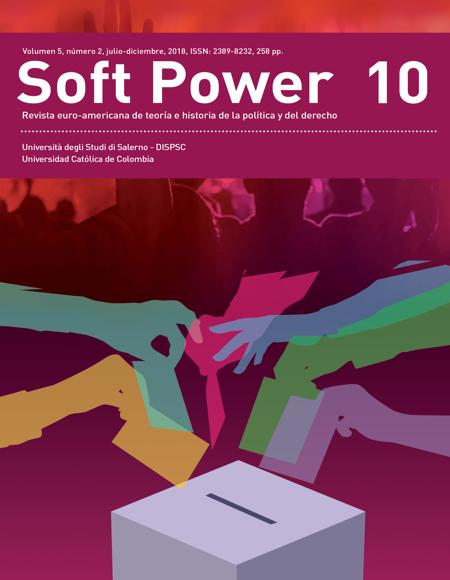Abstract
The debate on the conquest of America presents paradoxical aspects of universalism and particularism. Sepúlveda again proposes the Aristotelian anthropology of inequality, emphasizing the superior humanities of Spanish Christians with respect to the “barbarian” Indians, but, at the same time, theorizes universal belonging to humanity and the consequent obligation of the former to submit to the seconds. Vitoria elaborates a theory of natural rights but uses it to legitimize the wars of conquest and, at the same time, considers the “barbarians” as amentes and / or children. The universalism of Las Casas emerges in the overthrow of the theory of just war and in the attribution of subjective rights - before everything, equal freedom - for all individuals and peoples, as well as in the capacity to recognize cultural differences, the dignity of “other” ways of life, the importance of contexts for the implementation of the principles. It refers to a possible decline of the dialectic between universalism and particularism that deepens our conscience even in the face of the tragedies of today.
Keywords

References
Baccelli, L. (2009). I diritti dei popoli. Universalismo e differenze culturali. Roma-Bari: Laterza.
Baccelli, L. (2016). Bartolomé de Las Casas. La conquista senza fondamento. Milano: Feltrinelli.
Bottici, C. & Challand, B. (2010). The Myth of the Clash of Civilizations. London – New York: Routledge.
Ferrajoli, L. (2007). Principia iuris. Teoria del diritto e della democrazia. Roma-Bari: Laterza.
Ferrajoli, L. (2007). Principia iuris. Teoria del diritto e della democrazia. Roma-Bari: Laterza.
Ferrajoli, L. (1995). La sovranità nel mondo moderno. Nascita e crisi dello stato nazionale. Milano: Anabasi.
Gozzi, G. (2015). Umano, non umano. Intervento umanitario, colonialismo, “primavera arabe”. Bologna: Il Mulino.
Habermas, J. (1999). Ein Krieg an der Grenze zwischen Recht und Moral.. Recuperado de https://www.zeit.de/1999/18/199918.krieg_.xml
Habermas, J. (2004). Der gespaltene Westen: Frankfurt a. M., Suhrkamp.
Huntington, S. (1996). The Clash of Civilizations and the Remaking of World Order. New York: Simon & Schuster.
Ignatieff, M. (2001). Human Rights as Politics and Idolatry. Princeton: Princeton University Press.
Las Casas, B. de (1989-). Obras completas, director de la edición P. Castañeda Delgado. Madrid: Alianza Editorial.
Pagden, A. (1982). The Fall of Natural Man. The American Indian and the Origins of Comparative Ethnology. Cambridge: Cambridge University Press.
Pietropaoli, S. (2015). Il concetto giuridico di umanità. Breve storia di un non-detto del diritto. En M. Russo (al cuidado de), Umanesimo. Storia, critica, attualità. Firenze: Le Lettere (pp. 255-79).
Rawls, J. (1999). The Law of Peoples with “The Idea of Public Reason Revisited”. Cambridge MA: Harvard College.
Schmitt, C. (1950). Der Nomos der Erde im Völkerrecht des Jus Publicum Europaeum. Berlin: Duncker & Humblot.
Sepúlveda, J. G. de (1997). Ioannis Genesii Sepulvedae Democrates secundus, sive de iustis bellis causis, ed. A. Coroleu Lletget, en J. G. de Sepúlveda, Obras completas, III. Pozoblanco: Excmo. Ayuntamiento de Pozoblanco.
The White House (2002). The National Security Strategy of the United States of America. Recuperado de http://www.globalsecurity.org/military/library/policy/national/nss020920.pdf.
Trujillo Pérez, I. (1997). Francisco de Vitoria. Il diritto alla comunicazione e i confini della socialità umana. Torino: Giappichelli.
Vitoria, F. de (1934). De iustitia, ed. R. P. V. Beltrán de Heredia. Madrid: Publicaciones de la Asociación Francisco de Vitoria.
Vitoria, F. de (1960). Obras de Francisco e Vitoria. Relecciones teológicas, ed. T. Urdanoz. Madrid: La Editorial Católica.
Walzer, M. (1977). Just and Unjust Wars. New York: Basic Books.
Walzer, M. (1992). The New Tribalism. Dissent.
Walzer, M. (2004). Arguing about War. New Haven – London: Yale University Press, 2004.










